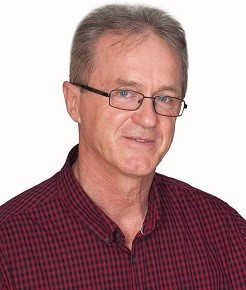In the quiet town of Willowbrook, nestled between the gentle hills and ancient oak trees, lived a young woman named Emma. Though she was in her early twenties, the shadows of her childhood stay behind like forgotten echoes in her heart. Her days were filled with a persistent pain, remnants of trauma that had taken root long before she had the chance to fully understand them.
Emma had grown up in a tumultuous household. Her father, once a vibrant man full of dreams, had been consumed by his own battles with depression and anger. Her mother, overwhelmed and exhausted, struggled to keep the family floating while navigating her own unspoken pain. The house, once a place of laughter, had become a refuge for unspoken fears and untended wounds.
One crisp autumn morning, Emma decided it was time to confront her past. With the first rays of dawn filtering through her window, she picked up a journal that had been gathering dust on her bedside table. It was a gift from her grandmother, a woman whose own strength Emma admired deeply.
As Emma began to write, she found herself hesitating. How could she give voice to the silent suffering that had coloured her childhood? But as the ink flowed, the act of writing began to transform her memories into something tangible, something she could examine and understand. The journal became her confidant, a safe space where she could unravel her feelings without fear of judgment.
One evening, while leafing through her entries, Emma came across a recurring theme: her desire to be seen and heard. She wrote about the moments when her father’s anger overshadowed her achievements and her mother’s silence made her feel invisible. Yet, within the pages, she also discovered the strength she had carried through those difficult times—the resilience to keep moving forward despite the pain.
Emma knew she needed to share her journey with someone who could help her make sense of it all. She reached out to a therapist named Dr. Harris, a compassionate woman with a gentle smile who specialized in trauma. The first session was challenging; Emma had to unearth memories she had buried deep. But Dr. Harris created a space of empathy and understanding, allowing Emma to explore her feelings without judgment.
In their sessions, Emma learned about the nature of trauma and how it shaped her perceptions and reactions. Dr. Harris introduced her to various coping strategies, such as mindfulness and cognitive restructuring. They worked on reframing her inner dialogue, helping Emma replace self-blame with self-compassion.
As the weeks turned into months, Emma began to notice a shift. She started to recognize the triggers that would send her spiralling into old patterns of fear and sadness. With Dr. Harris’s guidance, she practiced grounding techniques and developed a toolkit of strategies to help manage her emotional responses.
One day, while walking through Willowbrook’s peaceful park, Emma reflected on her journey. She noticed the delicate dance of the leaves in the breeze, the way the sunlight filtered through the branches. The beauty of the moment reminded her that, though her past was a part of her, it did not define her future.
Emma’s healing was not linear. There were setbacks and moments of doubt, but with each challenge, she learned more about herself and her strength. She found comfort in her journal, in her therapy, and in the quiet acceptance of her own journey.
In time, Emma’s shadowy past became a source of empathy and resilience. She began to volunteer at a local support group, sharing her story with others who were navigating their own struggles. Her experiences allowed her to offer hope and understanding, bridging the gap between her past and her present.
As the years went by, Emma continued to embrace her growth. The echo of her childhood whispers had transformed into a gentle vibration, a reminder of her capacity to heal and to help others. In her heart, she carried the knowledge that processing trauma was not about erasing the past but about finding peace within it and moving forward with grace.
And so, in the quiet town of Willowbrook, Emma found her way through the labyrinth of her past, emerging not just as a survivor but as a symbol of hope for those still seeking the light. As Emma did, you too can do it.
Author: Nenad Bakaj, MHumServ (RehabCouns), BSocWk, DipAppSci (Comm&HumServ), AMHSW, MAAC, MAASW, JP (Qld)
Nenad Bakaj is a Brisbane based Clinical Counsellor, Accredited Mental Health Social Worker, Life Coach and Bigger Bite Out Of Life Trainer with a keen interest in positive psychology, mental health and wellbeing, and is continually developing his professional skills and knowledge. Nenad enjoys working with adolescents and young adults, as well as older clients, and feels it is a privilege to be able to support them.
To make an appointment try Online Booking. Alternatively, you can call M1 Psychology Loganholme on (07) 3067 9129 or Vision Psychology Wishart on (07) 3088 5422.
